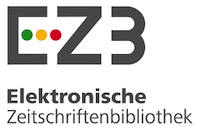Intellectual property and technological entrepreneurships. Entrepreneurship cases in the city of Córdoba, Argentina
Propiedad intelectual y emprendimientos tecnológicos. Casos de emprendimientos de la ciudad de Córdoba, Argentina
##plugins.themes.bootstrap3.article.main##
Technological entrepreneurs are key actors in invigorating an economy. The base of their competition in the market is the technological knowledge management they develop. It is at this point where intellectual property rights and their role in technological transfer become important. This work studied aspects related to intellectual property management in technological entrepreneurships in the city of Córdoba, Argentina. The results showed the importance intangibles protection has for entrepreneurs, who associate it with the competitiveness of their entrepreneurship, mainly regarding the generation of entry barriers and valuation by possible partners. Also, even though entrepreneurs know the importance of intangibles protection, they lack understanding of concepts related to this topic. Intangibles protection in technology-based entrepreneurships is a fundamental issue. This work suggests that entrepreneurs should consider intellectual property rights management as an investment and not as an expense for the development of entrepreneurships
Downloads
##plugins.themes.bootstrap3.article.details##
Benavides, C. y Quintana, C. (2003). Gestión del conocimiento y calidad total. Madrid, España: Ediciones Diaz de Santos S.A.
Díaz Chao, A. y Torrent Sellens, J. (2010). ¿Pueden el uso de las TIC y los activos intangibles mejorar la competitividad? Un análisis empírico para la empresa catalana. Estudios de Economía Aplicada, 28 (2), 1-24.
Drucker, P.F. (1985). Innovation and Entrepreneurship: Practice and Principles. New York, USA: Harper & Row.
EECBA. (2017). Ecosistema Emprendedor de Córdoba. Recuperado de http://eecordoba.org/.
García Mandaloniz, M. (2013). Los viveros de empresas para fortalecer la transferencia de la tecnología y el conocimiento desde la Universidad a la Sociedad: el reto de la Universidad emprendedora. Revista Pensar en Derecho, 3, 141-183.
Helmers, H. and Roger, M. (2011). Does patenting help high-tech start-ups? Research Policy, 40 (7), 1016- 1027.
https://doi.org/10.1016/j.respol.2011.05.003
Itami, H. and Roehl, T.W. (1987). Mobilizing Invisible Assets. Cambridge, USA: Harvard University Press.
Lederman, D. et al. (2014). El emprendimiento en América Latina: muchas empresas y poca innovación. Washington, USA: Banco Mundial.
https://doi.org/10.1596/978-1-4648-0284-3
Malhotra, N. (1997). Investigación de mercados. Un enfoque práctico. Ciudad de México, México: Prentice Hall Hispanoamericana S.A.
Mann, R. and Sager, T.W. (2007). Patents, venture capital, and software start-ups. Research Policy, 36 (2), 193-208.
https://doi.org/10.1016/j.respol.2006.10.002
Ministerio de Ciencia, Tecnología e Innovación Productiva. (2015). Guía Nacional de Vigilancia e Inteligencia Estratégica [VeIE]. Buenas prácticas para generar sistemas territoriales de gestión VeIE. Buenos Aires, Argentina: Ministerio de Ciencia, Tecnología e Innovación Productiva.
OCDE. (2006). Manual de Oslo de la OCDE. Guía para la recogida e interpretación de datos sobre innovación. Madrid, España: Grupo Tragsa.
OMPI. (2017). Organización Mundial de la Propiedad Intelectual. Recuperado de http://www.wipo.int.
Parga Dans, E. (2011). Innovación y emergencia de un servicio intensivo en conocimiento: el caso de la arqueología comercial. Santiago de Compostela, España: Universidad de Santiago de Compostela.
Parga Dans, E. et al. (2013). La innovación organizativa y de gestión como motor de dinamización empresarial. Journal of Technology Management & Innovation, 8 (2), 132-143.
https://doi.org/10.4067/S0718-27242013000200011
Pitkethly, R. (2011). UK Intellectual Property Awareness Survey 2010. Report for the UK Intellectual Property
Office. Oxford, United Kingdom: St. Peter's College, Oxford Intellectual Property.
Presutti, M. et al. (2007). Knowledge acquisition and the foreign development of high-tech start-ups: A social capital approach. International Business Review, 16 (1), 23-46.
https://doi.org/10.1016/j.ibusrev.2006.12.004
Ullrich, H. (2001). Intellectual Property, Access to Information and Antitrust: Harmony, Disharmony and International Harmonization. En Dreyfuss, R.C., Zimmerman, D. L. and First, H. (Ed.), Expanding the boundaries of intellectual property-innovation policy for the knowledge society (pp. 365-402). Oxford, United Kingdom: Oxford University Press.


































